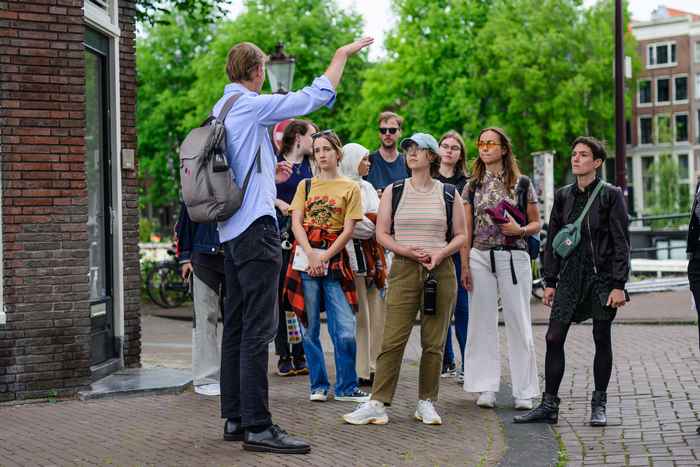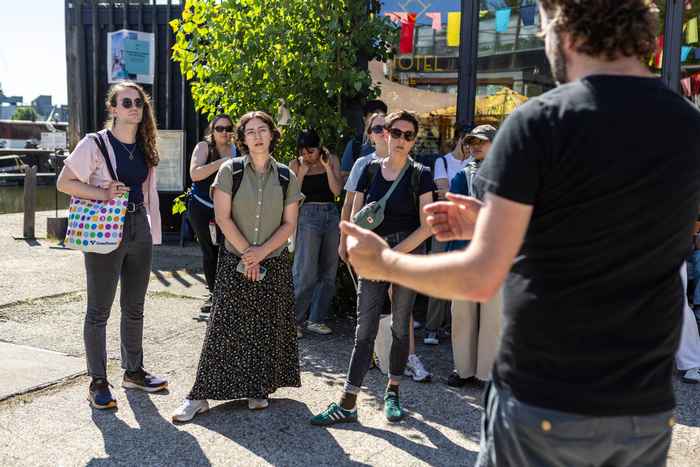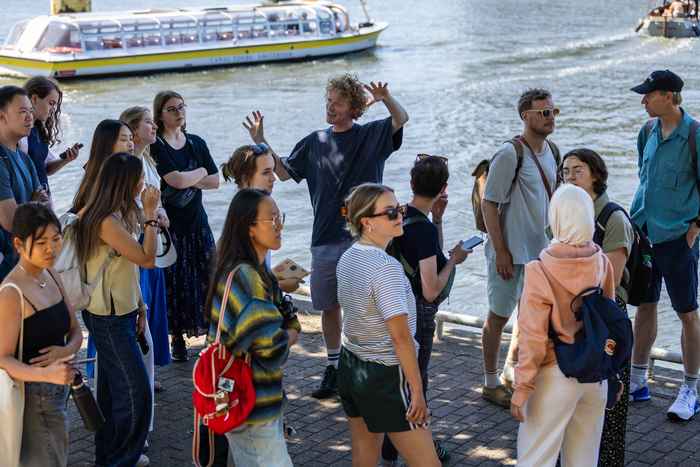Placemaking: from Practice to Impact
This three-week program explores placemaking—the philosophy and practice of enhancing urban spaces by involving their users. We’ll look at how it inspires place-led development, multiple value creation, entrepreneurial placemaking, and tactical urbanism—all aimed at making cities more human-centered with a higher quality of life.
-
Programme at a glance
Mode of instruction: On-campus (3 weeks) Academic dates: Thursday 25 June - Wednesday 15 July 2026 Housing dates: Wednesday 24 June - Thursday 16 July 2026 Academic fees: Student fee:
€1750. Read more about what is included in the fees.
Professional fee:
€2000. Read more about what is included in the fees.
Housing fees: €850 for a private room and shared facilities.
€925 for a private room and private facilities.
Housing is optional and private rooms are first come, first served. Read more about university-organised accomodation
Credits: 6 European Credits. Read more about credits and credit transfer. Early admission deadline: Sunday 1 February 2026
Students who require a Schengen Visa to study in the Netherlands are strongly advised to apply before the early deadline to ensure there is enough time to secure a visa appointment before the programme begins.
Regular admission deadline: Sunday, 15 March 2026 Who is this programme for? Level: Bachelors, Masters students and working professionals.
Background: Applicants should have an interest in urban studies, human geography, sociology and/or policy making. Working professionals with relevant experience in the above topics who wish to expand their knowledge in this field are also welcome to apply.
-
Programme description
We will dive into the many temporary and placemaking initiatives happening in transformation areas in Amsterdam. Initiatives where residents, housing associations, governments and businesses work together. A key focus will be on the potential to reshape cities by (re)designing some of their foundational elements—specifically, the rules and regulations that govern public spaces. Just as social media is shaped by algorithms from big tech, offline public spaces can also be seen as the outcome of an "algorithm"—the set of rules and regulations in a city that collectively determine the spatial context and, in turn, the way we use urban spaces. By changing the algorithm, you change the city.
Throughout the program, we will examine inspiring examples where rules have led to better urban spaces, including facade gardens in Amsterdam, the espresso bar culture in Italy, free public transport in Tallinn, and the vibrant street music scene in the Parisian metro. We will consider how strategies from the city or village where you live could be applied to the city of Amsterdam or the other way around. With your student-team you will develop a small scale intervention to test whether proposed solutions lead to improvement for its users.
With Placemaking UvA education, you can directly contribute to the city, developing soft skills that matter and realize change. Let’s go!
-
Academic directors
Bio Jesse Jop Jörg from We The City
We The City was founded in 2012 by Jesse Jörg and consists of an ever changing team of creatives, designers and producers who work at the intersection of concept development and urbanism. Our strength is based on creativity, the ability to ‘read’ the city and our collaborative mindset.
We The City proudly initiated BenchesCollective (now buurtbankjes), a grassrooted project that encouraged thousands of people from all around the world to turn their sidewalk into a little café for a day. We also initiated a now international rooftop festival encouraging people to have a better understanding of the potential of the vastly underused rooftop landscape. A recent project commissioned by RAUM is the Pop-Up Parking Service in which we encourage people to park something completely different than a car, challenging the fact that so much of our valuable public space is only being used for parking. The Pop-Up Parking Service is part of the podcast series we recently launched called Algorithm of the City. The podcast is an important inspiration for the Summerschool.
We The City believes in creating ripple effects, turning anonymous spaces into vibrant places. We operate with our ears and eyes wide open, constantly thinking of ways to change the city for the better. We The People. We The City.
Bio Joop de Boer en Jeroen Beekmans from Pop-Up City
Pop-Up City (PUC) is a creative agency based in Amsterdam, specializing in urban transformation and placemaking. Founded in 2007 by Jeroen Beekmans and Joop de Boer, PUC operates at the nexus of concept development, tactical urbanism, and strategic communication.
PUC collaborates on diverse urban projects across the Netherlands and internationally. Notable recent projects include the creation of the temporary Rhônepark in Amsterdam, a strategic placemaking initiative in Amsterdam SouthEast (Amstel III), and the publication of The City Changers Cookbook (2024).
Through its widely read international platform and the acclaimed book Pop-Up City: City-Making in a Fluid World (2014), PUC has established itself as a trendsetting voice in reimagining urban living for a dynamic and ever-changing world.
-
Explore our community
Want to get to know more about studying in Amsterdam, and what the urban fabric of sensescapes is like? Follow us on social media and join our summer community. Get a feel for our summer school vibe and our academic and social community, and learn about studying with us through the eyes of past summer school students.
Interested in hearing more about placemaking as a methodology and ongoing placemaking projects in Amsterdam? Listen to some of our placemaking experts in this episode of our podcast, Mokum.



- Mode
- Short-term
- Credits
- 6 ECTS, 3 weeks
- Language of instruction
- English
- Starts in
- July